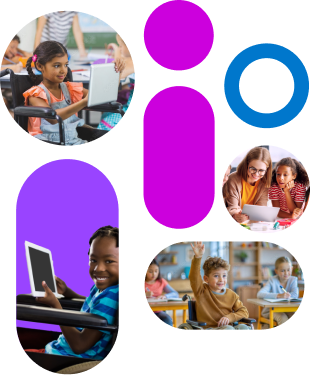Visually-Challenged Students in Anantapur to Write Exams Without Help of Scribes and Braille Script
Benetech is no stranger when it comes to empowering blind and visually impaired students to learn and live independent lives. Since July of 2021, our joined partnerships with foundations including, Lavelle Fund for the Blind, Raised Lines Foundation, EnAble India, XRCVC (Xavier’s Resource Centre for the Visually Challenged)–the Benetech team, led by Dr. Homiyar Mobedji in India– have been implementing a digital literacy program in efforts to launch digital transformation amongst schools for blind students. Because of these continued efforts, we’ve equipped schools with the technology and training they need to provide a digital-first experience. We’re proud to say this has led great progress with a few visually-challenged students in Anantapur, who are now able to write exams without help of scribes and braille script. The students will read the question papers using screen-reading software on laptops and key in their answers. Learn more about our impact below:
The article below is written by Ramesh Susarla for theHindu.com:
Six visually-challenged students of Rural Development Trust High School for Inclusive Education in Anantapur will write their final examinations, scheduled to be held at Rapthadu Government High School from April 3, on their laptops without taking the help of scribe. They will not use Braille question paper.
This is the first time in Andhra Pradesh that visually challenged students will write their examinations on computers, says school director, Rasineni Dasarath.
He said that all students of the Rural Development Trust High School for Inclusive Education were adept with the use of screen-reading software on laptops for all their five subjects —mathematics, English, science, social science and Telugu. Even as the students are good with Hindi, they have been exempted from writing the examination. The students will be assessed on their performance only in five subjects, he said.
“We have got permission from the Commissioner, School Education, to send the students with laptops for examination. The gadgets will be checked by the officials appointed by the department. The digital question papers will be uploaded to the computers on the day of the examinations and the students will screen-read and key in their answers,” Mr. Dasarath told The Hindu.
Of the 10 visually-challenged students of the school, the parents of six students allowed their wards to write the 10th standard examination on laptops, not in the traditional style. “The school management has been taking care of the children who would write the examination in this new method for the first time in the State. The students have undergone many practice sessions under the guidance of digital education trainer M. Kashivishwanath and mathematics teacher B. Shantakumari,” said Ram Kamal Manoj, a representative of Chakshumati, a Kerala-based NGO that has been helping the teachers and students to adopt digital teaching and learning methods, instead of Braille scripts.
The Rural Development Trust High School for Inclusive Education has introduced laptop-based internal examination for ninth-class students this year.
The students will be given 4 hours instead of 3 hours to write answers and printouts of the answer-sheets will be sent for evaluation. I have seen visually challenged children completing the 3-hour paper in 2.5 hours,” said Mr. Ram Kamal.
To learn more about Benetech’s inclusive education work in India and beyond, visit www.benetech.org/impact
